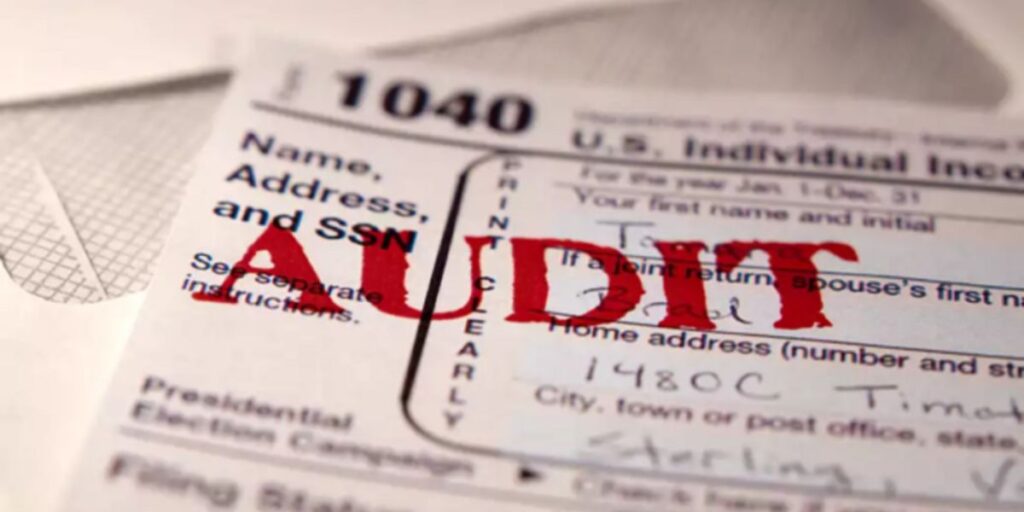Tax season can be stressful enough without the looming threat of an IRS audit. While most Americans file their returns without any trouble, the IRS flags thousands of taxpayers every year for review—and many of those cases stem from simple, avoidable mistakes.
Whether it’s a math error, underreporting income, or claiming suspicious deductions, even small missteps can catch the IRS’s attention.
With increased IRS funding and more digital tools at its disposal, the agency is becoming more effective at detecting red flags. If you’re not careful, these common errors could result in a dreaded audit letter landing in your mailbox.
Here are the top three mistakes that may lead to an audit in 2025—and what you should do now to stay on the safe side.
1. Underreporting Income – Even by a Little
Failing to report all your income is one of the fastest ways to trigger an IRS audit. Thanks to automated reporting systems, the IRS receives copies of W-2s, 1099s, and other income forms directly from employers, banks, and investment platforms.
If the numbers on your return don’t match what the IRS has on file, you’re more likely to be flagged—even if the discrepancy is small.
What You Can Do:
- Double-check every income document you receive.
- Wait until all 1099s and W-2s are in before filing.
- Don’t forget side gigs, freelance income, or investment gains.
2. Claiming Excessive Deductions or Credits
The IRS pays close attention to deductions that seem unusually high compared to your income level. For example, if you earned $50,000 but claimed $30,000 in charitable donations or business expenses, that could raise eyebrows.
Some of the most commonly misused deductions include:
- Home office deductions
- Business travel and meals
- Charitable contributions
- Earned Income Tax Credit (EITC)
Claiming legitimate deductions is perfectly fine—just make sure you can back them up with documentation if the IRS comes calling.
Commonly Misused Deductions That Can Trigger Audits:
| Deduction Type | Risk Level | Why It’s Flagged |
|---|---|---|
| Home Office Deduction | High | Often inflated or incorrectly calculated |
| Charitable Donations | Medium | Disproportionate to income |
| Business Expenses (Self-Employed) | High | Lack of proper receipts or justification |
| EITC | Medium | Misreported income or dependents |
3. Math Errors and Typos
Believe it or not, a simple math mistake could invite IRS scrutiny. Whether you use tax software or file manually, one misplaced number or incorrect Social Security number can throw off your entire return.
Incorrect calculations, typos, or rounding errors might not lead to a full audit, but they can delay processing and result in penalties or a demand for more documentation.
What You Can Do:
- Use trusted tax software or hire a professional.
- Review all numbers carefully before submitting.
- Double-check Social Security numbers for yourself and any dependents.
Why IRS Audits Are On the Rise in 2025
Thanks to increased funding from recent legislation, the IRS is hiring more agents and upgrading its technology. That means audits—especially for higher earners and self-employed taxpayers—are expected to increase in 2025.
While full-scale audits are still rare, the agency is focusing on enforcement like never before. Knowing the warning signs can help you stay out of the IRS spotlight.
How to Avoid Trouble
Avoiding an audit isn’t about being lucky—it’s about being accurate and honest. Here’s what you can do before it’s too late:
- File on time – Missing deadlines can trigger penalties and draw attention.
- Keep good records – Save receipts, donation letters, and mileage logs.
- Report everything – Even small side jobs or PayPal payments count as income.
- Use reputable help – A qualified tax professional can help you catch errors before the IRS does.
Conclusion
It only takes one mistake to turn tax season into a legal headache. Underreporting income, overclaiming deductions, or even making basic math errors can increase your chances of getting audited by the IRS in 2025. Don’t wait until it’s too late—double-check your numbers, be honest about your income, and keep detailed records. A little caution now can save you a major headache later.





More Stories
Do It Before It’s Too Late – These 3 Common Tax Mistakes Could Lead to an IRS Audit in 2025
Do It Before It’s Too Late – These 3 Common Tax Mistakes Could Lead to an IRS Audit in 2025
Do It Before It’s Too Late – These 3 Common Tax Mistakes Could Lead to an IRS Audit in 2025